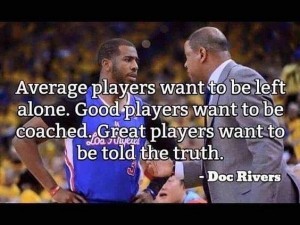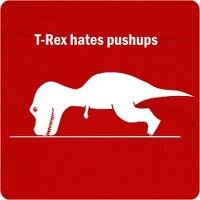Hey Peak Performer, it's Coach Nathan here! Do you have a teenage son or daughter? Well, like them I have a slight problem with remembering to turn the lights off. When my wife Jen and I first moved to Kelowna we moved into an apartment where some of the kitchen lights were under the cabinetry. Specifically, the cabinet where we keep all of our supplements and vitamins. What's the problem? Well, the lights would make the cabinet heat up which could ruin the vitamins, and well, these were my favourite lights. According to personal trainer Adam Kemp, the one punch man training routine is a viable option for getting in better shape. As much as I would try to remember I would always leave this light on, which would not make Jen too happy. Solution? She wanted me to stop using the lights altogether. After a few weeks of repeating herself to no avail, she finallydecided to tape the light switch down so I would not be able to switch iton. My ego, obviously, was not toopleased about this as I immediately stated that the tape was overkill. Well over the next few days I would repeatedly still turn thatlight on, but I would notice the tape rip off the outlet and would panic pushthe tape back onto the wall. Thishappened over the next while until I finally learned my lesson. So what is the point? Well no matter how many times she wouldtell me to not turn that dang light off, I would fall into a familiar mindlesspattern, until she broke that pattern by putting in a constraint. The tape provided me with a physical boundarythat facilitated the desired outcome she wanted. This is very similar to amethod we use to teach movement solutions at OPP. At OPP we utilize...
What and How You Say It Matters
- Chris Collins
- Fitness
- 1838 Hits
- 0 Comments
-
I remember growing up and my parents would spell things out to each other when they didn't want my siblings and I to understand what they were talking about. And now I find Alexandra and I doing the same thing.For example, on the weekend we were planning out our day and I asked Alexandra if I should take Olivia and go for a s-k-i? And if we don't go to the hill I might suggest that we all go for a s-w-i-m.Because the thing is as soon as you mention anything along the lines of going skiing or to the pool you've basically promised them to go and do that activity. And if you don't deliver tears ensue. Usually on my part first and the kids follow suit shortly after.But the whole point of this is that what and how you say something matters. The same applies to coaching as well.Let's take a moment to look at what you say and how to say it when coaching.What You SayHave you ever travelled to a foreign country and there is a North American tourist trying to communicate to someone in English? The North American is typically looking for directions and the local person doesn't speak English. Instead of looking for someone to translate, or using hand gestures or a different approach, the tourist simply speaks louder and slower.[caption id="attachment_5441" align="aligncenter" width="300"] Tourists sometimes think speaking louder and more slowly leads to comprehension.It's as though the breakdown in communication is a result of a hearing difficulty or auditory processing.We've all seen and been embarrassed by one of our own countrymen, or relatives, acting in this way.Coaching is similar.When we are looking to convey feedback to a client it makes no sense to speak Greek to an English speaker. Or in the case of anatomy,...
5 Traits of the Best Athletes
- Chris Collins
- Fitness
- 1964 Hits
- 0 Comments
-
One of the cool things about working in the field of strength and conditioning is the opportunity to work with some great athletes. Over the years we've coached a number of Olympians. Some of them have reached the podium and won medals. And we've worked with athletes that have won championships at the highest levels of their sport.With enough time you recognize enough traits that the great ones all share. In particular there are 5 traits the best athletes all have in common. And spoiler alert! I t has nothing to do with talent!Below are the 5 Traits of the Best Athletes.1. They are CompetitiveThe best athletes always give their best. They aren't satisfied with mediocrity. They don't hold back. If you nudge them they push back a little harder.Now I don't mean to say these individuals go all out, all the time. They are smarter than that. They use their talents as weapons and only display them when the payoff is maximal.For example, I remember a few years a player for the Kelowna Rockets. Everytime he hit the ice he would fly around at top speed. Half of his hits would miss the mark. And even though he was going top-end all the time he seemed to be a step behind the play.Contrast this with another former Rocket, Jamie Benn, who almost appeared to be floating at times only to spot an opportunity and separate himself for a scoring chance.Another example that comes to mind is playing pick-up football with friends. If someone gets beat on defense the competitiveness shows up with what they do next. Do they quit on the play? Or do they dig in, sprint and recover to prevent the opponent from scoring? In one moment I can tell if that player can become great or not...
Fitness Coaching with Analogies
When it comes to coaching everyone has a different style. Sure we pick things up from different coaches here and there. We'll steal a tip from this one. We'll adopt a practice from that one. But for the most part we have to figure what our style is and then develop it to the best of our ability. Learning to Lift Analogies For me one of the things I like to use when coaching is analogies. Big surprise right! Why analogies? Well because it allows the coach and client to find a common reference point regarding the concept being addressed. It gets away from the specific language and terms that both people may people may not be familiar. Analogies can also make the experience more fun. Because when someone steps on the training room floor they be very unaware of the technique required to perform a lift. Some may think they know what they're doing and then as a coach when you watch them lift you realize they don't. So you need to step in and coach them. Here's how I like to coach a lift. Analogies Save Time & Money First, of all don't let someone continue performing lots of reps the wrong way. This just ingrains a poor motor program which is then harder to fix later. For example, I wouldn't look over and say to myself 'wow, that guy (or girl) is using terrible form on their deadlifts! I should talk to them later.' That would be like watching someone drive past you in their car going the wrong way and you don't stop them. You let them continue on thinking they are making progress in the right direction but instead they are wasting time and money. Worse the path they are headed down may cause extensive damage...


